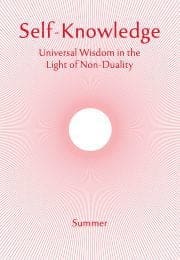Reflections on the Hadith from the Non-Dual Perspective
The Hadith are records of things said or done by the Prophet Muhammad, as witnessed by his close companions. They are central to the Islamic religious and spiritual tradition and several touch on the same themes as the non-dual teachings.
In Islamic teachings and culture, the Hadith are second only in importance to the Quran itself. As law and theology developed in the Islamic lands in the decades and centuries after the life of Muhammad, when questions arose about matters not directly addressed in the Quran, or in completely new circumstances, guidance was sought from the Hadith.
Still, the Quran provides the framework which the Hadith expands where necessary, so to understand the Hadith, we have to understand their relation to the Quran. The Quran appeared at a place and time where the worship of many gods and idols was common-place. Indeed the prosperity of the settlement at Mecca at that time, and the power of the ruling tribes there, rested on control of the sites of pilgrimage where people came to worship idols at the Ka'ba. It was in this situation that Muhammad preached the new religion of Islam, which stated in the strongest possible terms that there is no God except the one true God. The worst of sins in this religion was, and indeed still is, to worship as God anything other than God.
From the non-dual perspective we understand God as one name or word for the Ultimate Reality, the Supreme Being, that which truly is, and which no word or name can fully encompass, lying as it does beyond the capacity of the individualised mind. Evidently, to equate any limited notion with That, is indeed an intellectual and ethical error.
As well as the emphatic statement that there is no God but God, the Quran teaches the immediate ethical implications of this principle, among the most important of which is that the value of our actions depends on the motive behind the action. So the value of an act of devotion depends on how far it is really for the sake of the worshipped, and not mixed with other motives such as a desire to appear pious and respectable. The teaching is that the Supreme Being knows all our thoughts and feelings completely, from the inside, as it were, and that nothing is hidden from That. This implies an extreme nearness of the Highest; that ‘God is closer than the jugular vein’, as it says in the Quran. It follows that one does best to remember the Supreme and ultimately to depend on That as the power that determines the outcome of all actions and efforts.
This extreme nearness of God, his knowledge of our hearts from the inside, and the importance of remembering God and depending on God as the ultimate power in things, are the foundations of the mystical tradition sometimes known as Sufism, through which seekers in the Islamic tradition have sought intimate experience and knowledge of Reality. A direct knowledge of the supreme reality is also the goal of the non-dual teachings, and central in the practical side of the non-duality is to remember the ideal as the goal, and as the ultimate support of all.
Subscribe or enrol for free guest access to read all of this article and Self-Knowledge online.
Already subscribed or enrolled? Log in:


